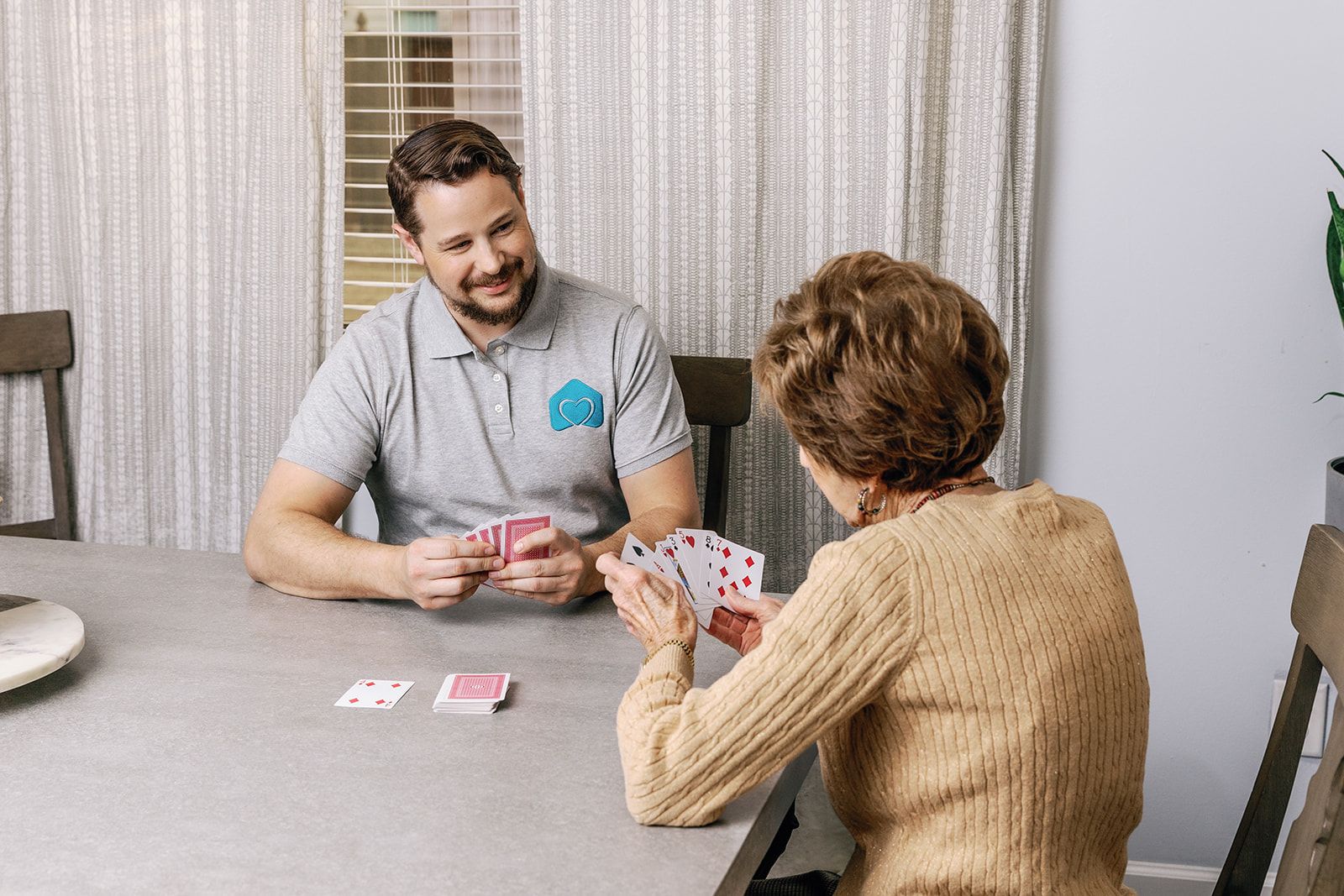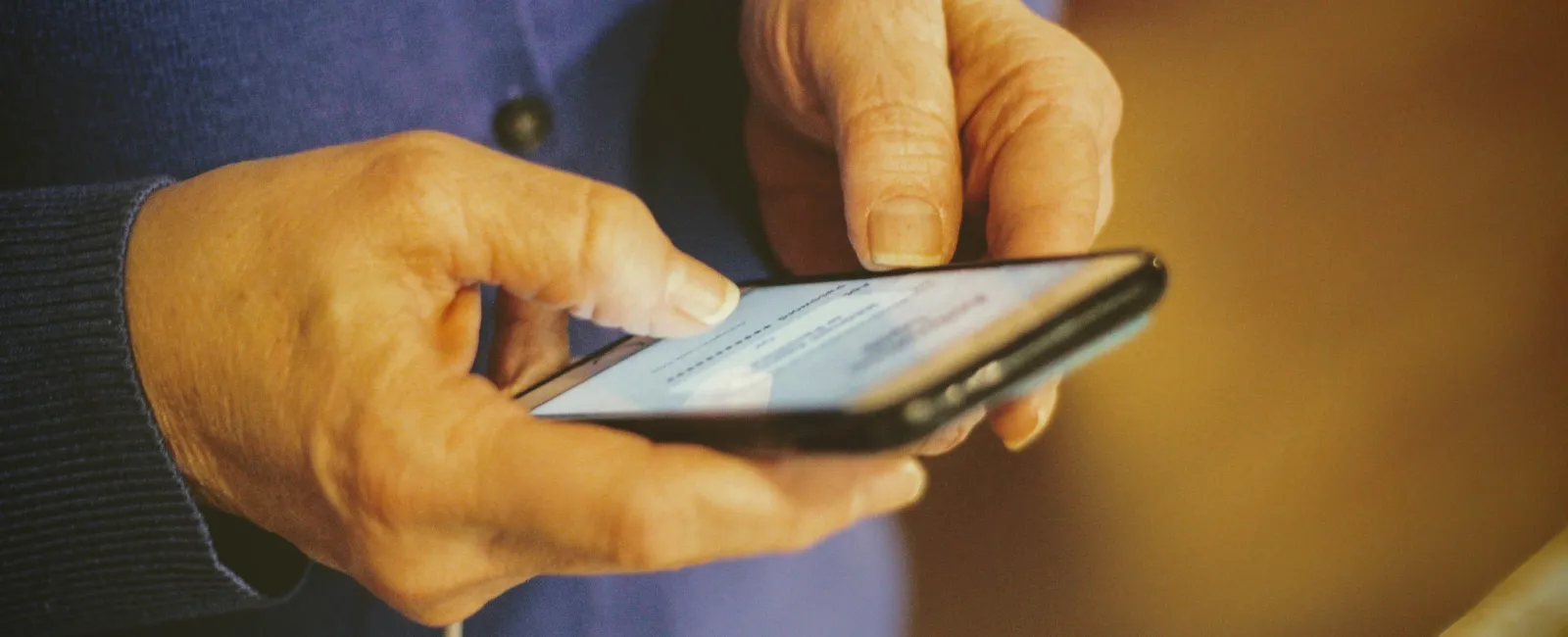The Best GPS Trackers for Seniors with Dementia: A Guide for Families
Caring for a loved one with dementia comes with challenges that go far beyond forgetfulness. Wandering is one of the most serious risks, and it's more common than many realize. According to the Alzheimer's Association, six out of ten people with dementia will wander at least once—some more than others.
For families, this presents an impossible dilemma. You want your loved one to have independence, but their safety is always on your mind. A simple trip outside could turn into a crisis if they become disoriented and can't find their way back.
Fortunately, technology for seniors has come a long way. GPS tracking devices are one tool that can provide peace of mind, helping families monitor a senior's location in real-time while offering them the freedom to move safely. But not all GPS devices are created equal, and finding the right one takes careful consideration.
Today, 4 Seasons Home Care will share the different technologies, systems, and trackers currently available.
How GPS Tracking for Seniors Works
GPS tracking devices work by connecting to satellites and mapping out a person's exact location. They allow family members or caregivers to monitor their loved one's whereabouts in real-time through a smartphone app, text alerts, or a web portal.
These devices come in different forms, from wearable wristbands to discreet trackers that can be attached to clothing, shoes, or even keychains. Some also include safe zone boundaries, emergency call buttons, and health monitoring features.
For seniors who are prone to wandering or getting confused about their surroundings, a GPS tracker can mean the difference between a stressful situation and a quick, safe resolution.

Best Types of GPS Trackers for Seniors with Dementia
When choosing a GPS tracking device, it's important to consider how comfortable the senior will be using it, how reliable the device is, and what additional features may be helpful.
Smartwatches with GPS
For seniors who already wear a watch, a GPS-enabled smartwatch can be a seamless way to introduce tracking technology. Many smartwatches allow family members to monitor location, heart rate, activity levels, and even sleep patterns through an app. Some models also include fall detection and emergency call features, making them a valuable all-in-one safety tool.
GPS Wristbands with Safe Zone Alerts
Wristband trackers are specifically designed for seniors with memory loss or dementia. Many allow caregivers to set geofencing zones—meaning if the senior leaves a designated area, an alert is immediately sent to family members. These devices are usually lightweight and comfortable, making them easy to wear all day.
Clip-On GPS Devices
For seniors who don't like wearing anything on their wrist, small GPS devices can be clipped onto a belt loop, shoe, keychain, or bag. These are discreet but effective, ensuring that caregivers can track the senior's movement without them needing to interact with the device. Some models also have built-in SOS buttons that allow seniors to call for help if needed.
GPS Shoe Inserts
A newer innovation in GPS tracking, shoe inserts with built-in GPS allow for seamless tracking without the senior having to remember to put on or charge a device. This is an ideal solution for seniors who frequently remove or misplace wearable devices.
Smartphones with Tracking Apps
While smartphones can be a useful GPS tool, they aren't always the best option for seniors with dementia. If the phone is forgotten, left behind, or turned off, tracking becomes impossible. However, for seniors who are comfortable using a smartphone, there are apps that allow family members to share locations and send alerts if movement stops unexpectedly.
Talk to A Senior Care Expert Now
Choosing the Right GPS Tracker: Key Considerations
Not all GPS trackers are built the same, and some may work better than others depending on your loved one's specific needs. Before choosing a device, consider these factors:
Ease of Use
Some seniors won't tolerate wearing a wristband or smartwatch, while others may forget to charge a device regularly. Choosing a tracking device that feels natural—like a watch they already wear or a clip-on tracker that stays on all day—will ensure better compliance.
Battery Life
Some GPS devices require frequent charging, while others have longer-lasting batteries that only need charging once a week. For seniors prone to forgetting daily routines, a longer battery life is a must.
Geofencing and Alert Features
The best GPS trackers allow caregivers to set safe zones, such as the home or a nearby park. If the senior wanders beyond the designated boundary, the family is notified immediately. This feature can prevent a minor confusion from turning into a full-on emergency.
Subscription Costs
Most GPS trackers require a monthly subscription fee for data tracking and alerts. When considering a device, compare the upfront cost, activation fees, and ongoing monthly charges to find an option that fits your budget.
Durability and Comfort
If a device is uncomfortable or easy to remove, the senior may refuse to wear it. Look for lightweight, waterproof, and comfortable designs that will be worn consistently.
Why GPS Trackers Aren't a Complete Solution
While GPS tracking devices are a helpful tool, they are not a perfect solution. They can alert families when a senior has wandered, but they can't prevent it from happening in the first place.
Many seniors with dementia may still need a caregiver present to ensure they are safe, engaged, and supported. In-home caregivers can provide companionship, monitor for signs of confusion, and prevent wandering before it starts.
If a loved one has started showing signs of memory loss or frequently leaves home without remembering where they're going, it may be time to consider additional care options.
How 4 Seasons Home Care Can Help
Caring for a senior with dementia is an overwhelming responsibility. At 4 Seasons Home Care, we provide compassionate, professional caregivers who help seniors stay safe, engaged, and supported in their own homes.
Our caregivers can:
- Monitor daily routines to prevent wandering before it starts
- Accompany seniors on walks or outings to ensure safety
- Assist with daily tasks that may become confusing
- Provide companionship and conversation to ease anxiety
A GPS tracker can help you know where your loved one is, but a caregiver ensures they're never lost in the first place. Contact 4 Seasons Home Care today to learn how we can support your loved one with memory care and safety solutions!
